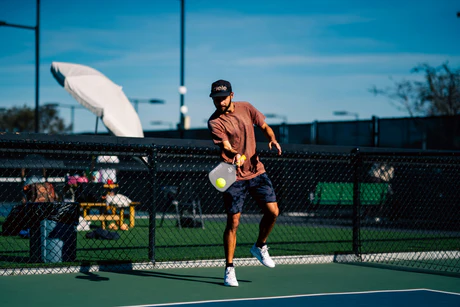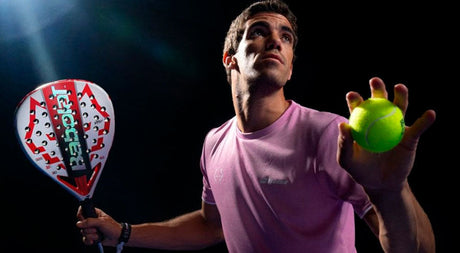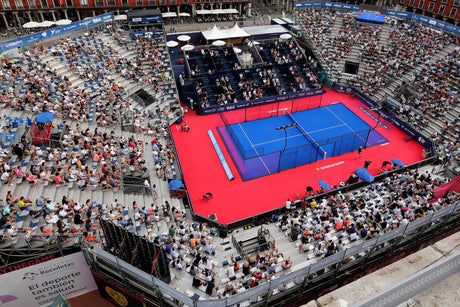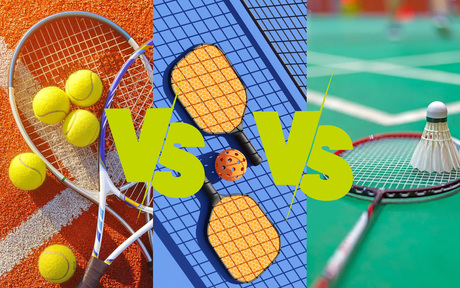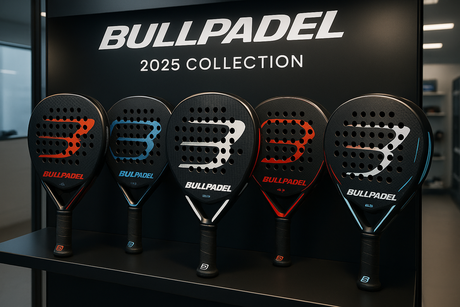Welcome to the thrilling world of padel! This fast-paced racket sport is taking the globe by storm, combining elements of tennis and squash to create an engaging game that's perfect for players of all skill levels. If you're a newcomer to padel tennis or looking to expand your racket sports knowledge, you’ve come to the right place. In this beginner's guide, we’ll walk you through everything you need to know about padel, its equipment, rules, techniques, and much more.
What is Padel?
Padel is a racquet sport that originated in Mexico in the 1960s and has since gained immense popularity, especially in Europe and Latin America. The game is played on a smaller, enclosed court that is similar to a tennis court but with walls on all four sides. Unlike traditional tennis, where players serve to start the game, in padel, the serve takes place below waist level, making it accessible for beginners.
Padel vs. Pickleball: What’s the Difference?
Many people often confuse padel with pickleball, but while both sports share similarities, they are distinct games with unique rules and equipment. Here are some key differences:
- Court Size: Padel courts are larger than pickleball courts and have walls that players can use to bounce the ball. In contrast, pickleball is played on a netted rectangular court without walls.
- Rackets: A padel racket is solid, perforated, and lacks strings, whereas a pickleball paddle is typically flat and can be made of various materials.
- Gameplay: Padel is usually played in doubles format, while pickleball can be played in singles or doubles.
Why Play Padel?
There are countless reasons to take up padel tennis. Here are just a few benefits:
- Social Interaction: Padel is played mainly in doubles, making it a great opportunity to connect with friends and meet new people.
- Accessible for Everyone: Due to its relaxed rules and the low-impact nature of the game, both beginners and seasoned athletes can enjoy padel without fearing injury.
- Fun and Engaging: The combination of strategy, teamwork, and skill makes padel tennis an engaging sport that players will want to enjoy again and again.
Essential Equipment for Padel
To get started with padel, you'll need a few essential pieces of equipment:
1. Padel Racket
Your choice of a padel racket can greatly affect your performance. Here are a few points to consider when choosing your first racket:
- Weight: Lighter rackets are easier to handle, especially for beginners, while heavier rackets may offer more power but require better technique.
- Shape: Rackets come in different shapes, with softer foam offering more comfort and a larger sweet spot, making it ideal for newcomers.
- Material: Look for rackets made from durable materials like carbon fiber or fiberglass, which can withstand the rigors of gameplay.
2. Padel Balls
Much like tennis balls, padel balls are essential for gameplay. They are slightly less pressurized than tennis balls to stabilize the bounce on enclosed courts. Be sure to have a few in your bag before you head out to play!
3. Comfortable Attire
Wearing comfortable and breathable athletic clothing is crucial while you play padel. Opt for synthetic fabrics that wick away moisture, allowing for optimal movement and performance.
4. Footwear
Choosing the right footwear is vital for both comfort and stability. Tennis or specialized padel shoes with good grip and support will help you perform your best on the court.
Basic Rules of Padel
Understanding the rules of padel tennis is essential for newcomers and will help you enjoy the game fully. Here’s a quick rundown of the basic rules:
Game Objective
The main objective in padel is similar to that of tennis: to win points by hitting the ball over the net and making it land in the opponent's court. Players must strategize, using the walls and court space to gain an advantage.
Scoring System
The scoring in padel follows the traditional tennis scoring system:
- Games: A game is won when a player reaches four points (0, 15, 30, 40).
- Sets: A set is won when a player wins six games. Players must win by at least two games to take the set.
- Match: Matches are typically played as best of three or five sets.
Serving
A player serving must stand behind the service line and hit the ball below their waist. The serve must bounce in the opponent's service box before the opposing team has a chance to return it.
Ball in Play
After the serve, the ball can hit the walls, but it must cross the net and bounce within the designated opponent's court area. Players can use any part of their paddles to hit the ball, including a lob or volley.
Techniques for Padel Beginners
Now that you know the basics, let’s explore some fundamental techniques that every beginner should master:
1. Grip Techniques
Choosing the correct grip is essential in padel tennis. Here are two popular grips:
- Continental Grip: Most versatile grip that allows players to hit forehands and backhands effectively.
- Eastern Grip: This grip aids in generating topspin and is excellent for players who prefer aggressive play.
2. Footwork
Good footwork will improve your overall gameplay. Practice moving quickly and efficiently on the court, maintaining an athletic stance with your knees slightly bent to react swiftly as the ball comes to you.
3. Basic Shots
Mastering the fundamental shots in padel will improve your skills:
- Forehand: Hit the ball with an open racket face to generate topspin.
- Backhand: Use a closed racket face to return the ball effectively.
- Volley: Position yourself close to the net and drop your racket head to hit the ball early.
- Lob: This high shot can catch your opponents off guard and is useful for defensive play.
Joining the Padel Community
One of the best parts of learning padel is joining a growing community of players who share the same passion for the game. Seek out local padel clubs, join community events, or even participate in friendly matches to enhance your skills and meet people who love the sport just as much as you do.
FAQs About Padel
If you’re still curious about padel, here are some frequently asked questions that might help:
Is Padel Hard to Learn?
Not at all! Padel tennis is considered beginner-friendly due to its approachable nature and the simplified serving style. With practice, anyone can become proficient.
Can I Play Padel Year-Round?
Yes! Many padel courts are constructed indoors, allowing players to enjoy the game in any weather conditions. You can always find a local club to get your padel fix!
How Does Padel Compare to Other Racket Sports?
While padel shares elements with tennis and pickleball, it has a unique dynamic and playing style due to its enclosed court. Many players find it more engaging, as it emphasizes teamwork and strategy.
Ready to Smash Your Goals?
With this beginner's guide to padel, you're well-equipped to dive into the game and start enjoying all its benefits. Embrace the social atmosphere, develop your skills, and enjoy every moment on the court. Whether you’re playing for fun or looking to compete, there's a place for everyone in the exhilarating sport of padel tennis. So grab your padel racket and get ready to smash your goals!


